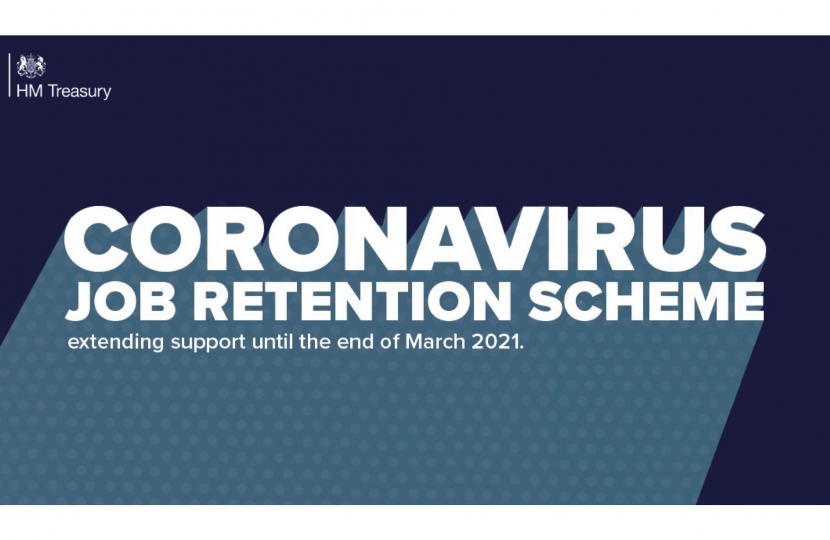
We recently announced the extension of the Coronavirus Jobs Retention Scheme (CJRS) from 1 November until 2 December. As we saw from the first lockdown, the economic effects are much longer lasting for businesses and areas than the duration of any restrictions. Today, we are extending the CJRS until the end of March for all parts of the UK. We will review the policy in January to decide whether economic circumstances are improving enough to ask employers to contribute more.
The CJRS will continue to provide eligible employees with 80% of their usual salary for hours not worked, up to a maximum of £2,500 per month. In light of the extension of the CJRS, the Job Support Scheme has been postponed.
For more information on the CJRS please visit: https://www.rebeccaharris.org/government-support
Job Retention Bonus (JRB)
The JRB will not be paid in February and we will redeploy a retention incentive at the appropriate time. The purpose of the JRB was to encourage employers to keep people in work until the end of January. However, as the CJRS is being extended to the end of March, the policy intent of the JRB falls away.
Additional Financial Support for Jobs and Businesses Announced
More help for the self-employed
We recently announced an extension of the Self-Employment Income Support Scheme to support self-employed individuals who are experiencing reduced demand or cannot trade due to the effect of coronavirus. We then doubled the support from 40% to 80% of trading profits for November, which increased the overall level of the grant to 55% of trading profits.
Today, the Government is announcing that we are increasing the overall level of the grant to 80% of trading profits covering November to January for all parts of the UK. This provides equivalent support to the self-employed as we are providing to employees through the government contribution in the CJRS. It is calculated based on 80% of 3 months’ average trading profits, paid out in a single instalment and capped at £7,500.
This is £7.3 billion of support to the self-employed through November to January alone, with a further grant to follow covering February to April. This comes on top of £13.7 billion of support for self-employed people so far, one of the most comprehensive and generous support packages for the self-employed anywhere in the world.
HMRC will pay this more generous grant sooner than planned and in good time for Christmas – the window for claiming a grant will open on 30 November, two weeks earlier than previously announced.
More funding for Devolved Administrations
The Chancellor also announced today an increase in the upfront guarantee of funding for the devolved administrations from £14 billion to £16 billion. This uplift will continue to support workers, business and individuals in Scotland, Wales and Northern Ireland.
Additional Support
This comes on top of the extensive support already announced:
- Cash grants of up to £3,000 per month for businesses which are closed in England
- £1.1 billion for councils in England to further support businesses more broadly over the coming months
- Extension of existing loan schemes to the end of January and an ability to top-up Bounce Back Loans
- An extension to the mortgage payment holiday for homeowners
- Providing councils in England with up to £500 million of funding to support the local healthcare response
- Over £200 billion on VAT relief, business rate relief, loans, tax deferrals, and support for individuals
Recap of existing economic support for people and businesses
- Reduced VAT for hospitality, accommodation and attractions until the end of March 2021
- Business rates relief for hospitality, retail, leisure and nurseries until the end of March 2021 in England
- The £20 per week increase to Universal Credit standard allowance, increases to Local Housing Allowance until the end of March 2021 – collectively worth over £7 billion this year
- The £1.57 billion Culture Recovery Fund and £750 million for charities
- £500 payments for those on low incomes in England who are asked to self-isolate for 14 days, and £500 million Hardship Fund for local authorities to use to help the most vulnerable
- Millions of discounted, government backed loans
- Extensive tax deferrals for general tax, VAT and Income Tax Self-Assessment
